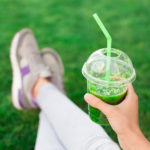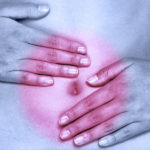By David Blyweiss, M.D., Advanced Natural Wellness
If you’ve ever been to Vegas, I’m sure you’ve seen those mile-long all-you-can-eat buffets that are a staple in just about every casino. While they advertise lots of food for a very reasonable price, they conveniently forget to tell you about the pain you’ll suffer later.
But you don’t need a Vegas getaway to develop heartburn and indigestion. Eating too fast or eating the wrong foods can trigger an attack, too. When it happens, you may reach for an antacid. If that doesn’t work, you reach for another. While this might bring temporary relief, you may find that you’re wide awake at 3 a.m. with burning pain so severe you wonder if you’re having a heart attack.
What’s going on?
Heartburn happens when the lower esophageal sphincter (the muscle that keeps stomach acid from splashing up into the throat) weakens and doesn’t seal completely. This allows stomach acid and food to flow back into your esophagus and throat, especially when you overeat.
The problem with drugs used to treat heartburn is that they either neutralize or stop the production of stomach acid. That might sound like a good thing if your chest is on fire, but over the long haul it’s not healthy. Without enough stomach acid, your digestive tract won’t be able to properly digest your food. You’ll also miss out on many of the nutrients that the body absorbs during digestion.
Are You Suffering From...
- Love handles and a pot belly
- Romance that isn't what it used to
- Forgetfulness and inattention
- Low (or no) strength and endurance
- A sex drive that's shifted into neutral...or worse
If so...you may have Mature Male Burnout. Click here to discover more about this unique condition and what you can do about it.
Here are my favorite tips for preventing heartburn naturally—and for easing the pain if it does strike:
- Choose foods that are low in fat and high in fiber. The strongest research links a low-fat, high-fiber diet with less heartburn.1 Greasy, fried foods have the worst record.
- Avoid alcohol, chocolate or peppermint. All three relax the esophageal valve, allowing reflux to occur.2
- Keep a food diary. Tracking which foods trigger symptoms is important if you suffer from frequent heartburn. This can help you pinpoint the foods you should avoid and those that you can eat and enjoy freely.
- Stop smoking. The nicotine in cigarettes stimulates acid production in the stomach. This relaxes the lower esophageal sphincter, opening the door for food to flow back to the esophagus. Smoking also slows down digestion and the time it takes food to travel to the small intestine.
- Maintain your ideal weight. Being overweight causes more pressure in the stomach. In a recent study, about 13% of obese people suffered from heartburn.3 Losing weight or maintaining your ideal body weight can help relieve symptoms.
- Opt for smaller portions. Loading up your plate with big servings not only packs on the pounds, but food stays in the stomach longer before it is transferred to the small intestine. This increases the possibility that food mixed with stomach acid will travel back into the esophagus and create a burning sensation.
- Don’t eat before going to bed. Lying down when your stomach is still full will push the food back to the esophagus along with the acid. Even lying back in a recliner can spell trouble. You can solve this problem by make sure you eat at least 3 hours before going to bed.
- Eat slowly. Chewing your food properly and eating slowly is key to healthy digestion. When you eat too quickly, your stomach produces more acid. This increases the odds that you will experience acid reflux.
- Take a walk. Studies show that exercise can help prevent heartburn.
Most people find relief with these healthy habits. But if you need some extra help, try a little licorice.
Licorice heals the mucosal lining of the digestive tract by increasing the production of mucin, a compound that protects against the damaging effects of stomach acid. But not any licorice will do. Ordinary licorice root can raise blood pressure if used on a daily basis for more than a week. Opt instead for chewable deglycyrrhizinated licorice tablets (DGL), a safe and effective form of the herb. Chew 250 to 500 mg of deglycyrrhizinated licorice (DGL) before meals and bedtime.
References:
- v Schönfeld J. Fat, spices and gastro-oesophageal reflux.Z Gastroenterolgie. 2007;45:171-175.
- Friedman G. Nutritional therapy of irritable bowel syndrome. Gastroenterology Clinics of North America. 1989;18:513-524.
- Ayazi S. Obesity and gastroesophageal reflux: quantifying the association between body mass index, esophageal acid exposure, and lower esophageal sphincter status in a large series of patients with reflux symptoms. Journal of Gastrointestinal Surgery. 2009;13:1440-1447






